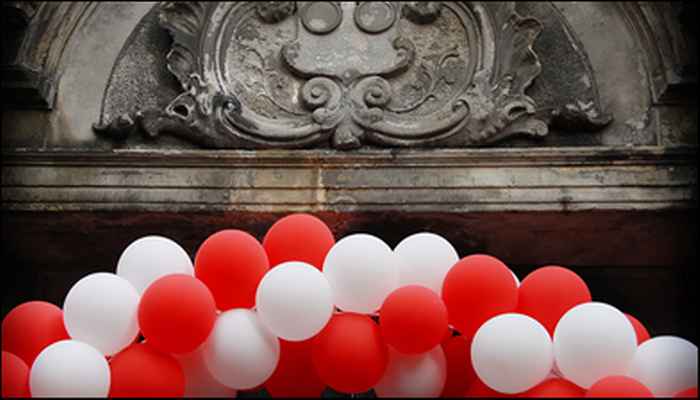University Day 2012: from ‘polder model’ to data breaches
1 June 2012

Former students, academics and donors came together for discussions and lectures at the intersection of science and society.
The UvA organised University Day for the eleventh time this year. Louise Gunning-Schepers, president of the Executive Board, gave the opening address in the Aula in the morning. Alexander Rinnooy Kan, chairman of the Social and Economic Council of the Netherlands (SER) and University Professor of Economics and Business Administration at the UvA since September 2012, then gave a lecture entitled 'The Polder Model in Times of Polarisation'. Consultation is a core activity in the Netherlands, the greatest common factor of discussion, meetings and negotiations and the heart of our social interaction. Where does our preference for the consultation route originate from? And what has this achieved? Rinnooy Kan believes the polder model is an interesting case when answering these questions the Dutch tradition of consultation is ultimately completely unique.
Knowledge festival
The main attraction during the University Day was the knowledge festival with debates and lectures which took place at the Oudemanhuispoort in the afternoon. The lecture 'Dyslexia or ADHD? A Label for Every Child?' dealt with the dominant trend to label children which has taken place in recent years. Zef Hemel, who was appointed to the Wibaut Chair this year, argued that urban planning has to change. In his lecture 'Wiki City: Characteristics of a Sustainable Spatial Planning', he explained why we should stop the traditional way of planning. There are an ever-increasing number of data breaches at companies, hacked government agencies and criminals who plunder accounts. Business communication, personal information and financial transactions are increasingly done through the Internet. But how safe is that? Two scientists gave a demonstration. In an episode of 'Room for Discussion', the discussion programme of the Faculty of Economics, Barbara Baarsma (professor of Applied Economic Research) and Ronald Plasterk (member of Parliament for the Dutch Labour Party) discussed current economic issues. In the 'Lower House' debate 'What does Europe matter to us?', Kathalijne Buitenweg (former MEP for the Green Party) advanced a thesis that was further discussed by the audience.
In addition to the activities at the Oudemanhuispoort , there was a parent-child programme at the Science Park Amsterdam campus with special children's workshops and lectures. In USC Universum, the UvA sports centre, there was also a special sports programme.
Closing event
During the closing ceremony, presented by the Dutch filmmaker Ivo Niehe, the UvA Thesis Prize 2012 for the best student thesis of the past year was awarded to the winner. Comedian Emilio Guzman also performed. Rector Magnificus Dymph van den Boom ended the day with a closing address. In the evening, the UvA J.Pzn Sweelinck Orchestra gave a concert at the Singelkerk.